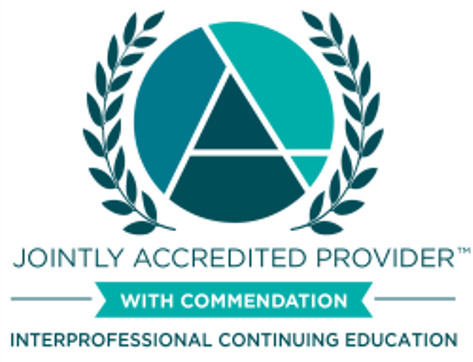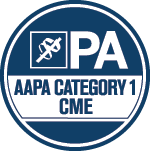Updates in Palliative Care 2024
This course offers Live (in-person) and Livestream (virtual) attendance options.

Course Directors: Frank (Andy) A. Bock, D.O., Molly A. Feely, M.D., and Jacob J. Strand, M.D.
Mayo Clinic's Updates in Palliative Care is a multidisciplinary CME course designed to build and enhance your palliative care knowledge. Experts from the Mayo Clinic Center for Palliative Care provide clinically relevant pearls for palliative care providers and clinicians from primary care, hematology/oncology, hospital medicine, critical care and related specialties. If you care for patients with serious illness and are looking to broaden your skills beyond the basics, this is the course for you.
| Registration | Dates/Time | Fee |
|---|---|---|
| Update in Palliative Care (Live and Livestream) | May 2 - 4, 2024 | $895 |
| Update in Pediatric Palliative Care | May 1, 2024 7:00 a.m. - 4:30 p.m. | $495 |
| Sign up for both to receive a $100 discount | $1290 | |
| It Takes a Village* *You must sign up for the General Session to take this course | May 2, 2024 1:30 - 4:45 p.m. | $250 |
| Palliative Care KSA - Live (in-person) Only* *You must sign up for the General Session to take this course | May 2, 2024 1:00 - 5:00 p.m. | $250 |
| Buprenorphine & Palliative Care* *You must sign up for the General Session to take this course | May 3, 2024 1:30 - 4:45 p.m. | $250 |
Target Audience
Targeted clinician specialties (MD, NP, PA-C) including clinicians from general internal medicine, family medicine, hospital medicine, oncology, hospice and palliative care, critical care, geriatrics, nephrology and cardiology.
Learning Objectives
Upon completion of this activity, participants should be able to:
- Develop treatment strategies for common symptoms in patients with serious illness.
- Utilize the Serious Illness Conversation Guide to assess patients' goals and values.
- Define adaptive coping and apply intervention strategies to improve patient and family coping.
Attendance at any Mayo Clinic course does not indicate or guarantee competence or proficiency in the skills, knowledge or performance of any care or procedure(s) which may be discussed or taught in this course.
A block of guest rooms has been reserved for attendees and their guests with special course rates at the Fairmont Olympic, Seattle, WA. To receive the special rate of $299.00 Deluxe Room (plus applicable taxes and fees), reservations must be made before the room block is filled or before the expiration date of April 9, 2024, whichever comes first. After April 9, 2024, reservations will be taken based on space and rate availability.
Please identify yourself as a participant of the Mayo Clinic Palliative course when making your reservation. You may call (206) 621-1700 to make your reservation or click on the link to make a online reservations.
All travel and lodging expenses are the sole responsibility of the individual registrant.
Course Directors
Frank (Andy) A. Bock, D.O.
Dr. F. Andrew (Andy) Bock is a Mayo Clinic Palliative Medicine Consultant with the Division of Community Internal Medicine, Geriatrics and Palliative Care and an Assistant Professor with the Mayo Clinic Alix School of Medicine. He has been board certified in Hospice and Palliative Medicine since 2004 and is a Hospice Medical Director with Mayo Hospice. He currently serves as the Palliative Care Fellowship Hospice Rotation Director and previously served as chair of the Palliative Medicine Clinical Practice Committee. Andy has an interest in physician communication and complex medical decision making including advanced care planning and end of life shared decision making. He continues to practice palliative care in the hospital, subacute and community settings
Molly A. Feely, M.D.
Dr. Feely is triple boarded in family medicine, internal medicine, and palliative medicine. Her clinical interests lie in palliative care for patients with end stage renal disease and pain management for patients with dual diagnoses of cancer and substance use disorder. She has been very active in education throughout her career, is a former program director for the hospice palliative medicine fellowship at Mayo and current education chair for palliative medicine. She has been member of the executive leadership team for the section of palliative medicine at Mayo Clinic Rochester for 10 years.
Jacob J. Strand, M.D.
Dr. Strand is currently Chair, Enterprise Center for Palliative Medicine and Assistant Professor of Medicine, Mayo Clinic College of Medicine and Sciences. He sees hospitalized patients with complex symptom needs on the inpatient palliative care services and works closely with patients and their caregivers to manage complications of serious illness, particularly patients with cancer and advanced heart failure in the outpatient Symptom Management, Pain and Quality of Life Clinic at Mayo Clinic in Rochester. Dr. Strand's clinical research interests center around the integration of palliative medicine into the care of patients with cancer and advanced cardiac disease, management of complex cancer-related pain and barriers to cancer pain management. He participates in several active national research protocols and lectures nationally and internationally on these topics.
 Accreditation Statement
Accreditation Statement
In support of improving patient care, Mayo Clinic College of Medicine and Science is jointly accredited by the Accreditation Council for Continuing Medical Education (ACCME), the Accreditation Council for Pharmacy Education (ACPE), and the American Nurses Credentialing Center (ANCC) to provide continuing education for the healthcare team.
Credit Statement(s):
AMA
Mayo Clinic College of Medicine and Science designates this live activity for a maximum of 31.50 AMA PRA Category 1 Credits™. Physicians should claim only the credit commensurate with the extent of their participation in the activity.
AAFP
The AAFP has reviewed Updates in Palliative Care 2024 and deemed it acceptable for up to 30.50 Live AAFP Prescribed credits. Term of Approval is from 05/01/2024 to 05/04/2024. Physicians should claim only the credit commensurate with the extent of their participation in the activity.
AAFP Prescribed credit is accepted by the American Medical Association as equivalent to AMA PRA Category 1 credit(s)™ toward the AMA Physician's Recognition Award. When applying for the AMA PRA, Prescribed credit earned must be reported as Prescribed, not as Category 1.
 AAPA
AAPA
Mayo Clinic College of Medicine and Science has been authorized by the American Academy of PAs (AAPA) to award AAPA Category 1 CME credit for activities planned in accordance with AAPA CME Criteria. This activity is designated for 31.50.
IPCE
This activity was planned by and for the healthcare team, and learners will receive 31.50 Interprofessional Continuing Education (IPCE) credit for learning and change. AAPA Category 1 CME credits. PAs should only claim credit commensurate with the extent of their participation.

American Board of Internal Medicine (ABIM)
Successful completion of this CME activity, which includes participation in the evaluation component, enables the participant to earn up to 30.50 MOC points in the American Board of Internal Medicine’s (ABIM) Maintenance of Certification (MOC) program. It is the CME activity provider’s responsibility to submit participant completion information to ACCME for the purpose of granting ABIM MOC credit.

American Board of Surgery (ABS)
Successful completion of this CME activity, which includes participation in the evaluation component, enables the learner to earn credit toward the CME and Self-Assessment requirements of the American Board of Surgery’s Continuous Certification program. It is the CME activity provider's responsibility to submit learner completion information to ACCME for the purpose of granting ABS credit.
Royal College of Physicians and Surgeons of Canada
Through an agreement between the Accreditation Council for Continuing Medical Education and the Royal College of Physicians and Surgeons of Canada, medical practitioners participating in the Royal College MOC Program may record completion of accredited activities registered under the ACCME’s “CME in Support of MOC” program in Section 3 of the Royal College’s MOC Program.
Other Healthcare Professionals:
A record of attendance will be provided to all registrants for requesting credits in accordance with state nursing boards, specialty societies or other professional associations.
| Sessions | Date / Time | Credits |
|---|---|---|
| Updates in Pediatric Palliative Care | May 1, 2024 7:00 a.m. - 4:30 p.m. | 8.00 |
| Updates in Palliative Care | Thursday, May 2, 6:30 a.m. - 12:30 p.m. | 4.75 |
| Friday, May 3, 6:15 a.m. - 12:30 p.m. | 5.75 | |
| Saturday, May 4, 6:15 a.m. - 12:30 p.m. | 5.75 | |
| Optional Workshops | ||
| It Takes a Village | May 2, 2024 1:30 - 4:45 p.m. | 3.00 |
| Palliative Care KSA - Live (in-person) Only | May 2, 2024 1:00 - 5:00 p.m. | 4.00 |
| Buprenorphine & Palliative Care | May 3, 2024 1:30 - 4:45 p.m. | 3.25 |
For disclosure information regarding Mayo Clinic School of Continuous Professional Development accreditation review committee member(s) and staff, please go here to review disclosures.
Available Credit
- 30.50 AAFP Prescribed
- 31.50 AAPA Category 1
- 30.50 ABIM
- 31.50 ABS
- 31.50 AMA PRA Category 1 Credit™
- 31.50 Attendance
- 31.50 IPCE
In response to company inquiries, we are excited to share that the Mayo Clinic Updates in Palliative Care 2024 has expanded its commercial support offerings to include a variety of sponsorship opportunities! Please check out our comprehensive prospectus.
If you are interested in exhibiting, please complete the Letter of Agreement.
If you are interested in Sponsoring, please complete the Letter of Agreement.
If you have additional questions, please Contact: winter.lisa@mayo.edu
| Registration | Dates/Time | Fee |
|---|---|---|
| Update in Palliative Care (Live and Livestream) | May 2 - 4, 2024 | $895 |
| Update in Pediatric Palliative Care | May 1, 2024 7:00 a.m. - 4:30 p.m. | $495 |
| Sign up for both to receive a $100 discount | $1290 | |
| It Takes a Village* *You must sign up for the General Session to take this course | May 2, 2024 1:30 - 3:00 p.m. | $250 |
| Palliative Care KSA - Live (in-person) Only* *You must sign up for the General Session to take this course | May 2, 2024 1:00 - 5:00 p.m. | $250 |
| Buprenorphine & Palliative Care* *You must sign up for the General Session to take this course | May 3, 2024 1:30 - 4:45 p.m. | $250 |
Please update your profile to let us know if you have dietary restrictions or access requirements.
To claim credit for livestream participation in this course, learners must view the content during the hours posted for the live activity. This course is not approved for on-demand delivery.
Commitment to Equity, Diversity and Inclusion
Mayo Clinic School of Continuous Professional Development (MCSCPD) strives to foster a learning environment in which individual differences are valued, allowing all to achieve their fullest potential.
Cancellation and Refund Policy
View Cancellation and Refund Policy
All requests must be submitted in writing using the Contact Us Form.
Any use of this site constitutes your agreement to the Terms and Conditions of Registration.

 Facebook
Facebook X
X LinkedIn
LinkedIn Forward
Forward